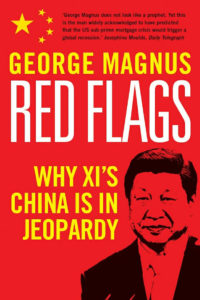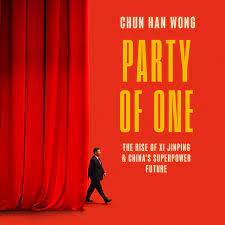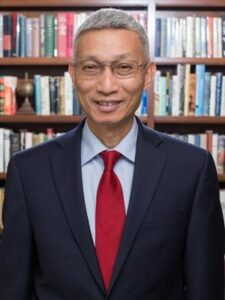 Chinese President Xi Jinping’s ideology-driven economic policies risk derailing the country’s future as they fundamentally change incentives driving the behavior of local officials, entrepreneurs and young Chinese, Nikkei Asia reports.
Chinese President Xi Jinping’s ideology-driven economic policies risk derailing the country’s future as they fundamentally change incentives driving the behavior of local officials, entrepreneurs and young Chinese, Nikkei Asia reports.
In an Asia Society Policy Institute analysis, “The End of Experimentation and Aspiration in Xi Jinping’s China,” senior fellow Diana Choyleva describes the addition of “common prosperity” to Chinese Communist Party doctrine in August 2021 as a “watershed moment.” In stark contrast to the pragmatic policies of former leader Deng Xiaoping, which let local governments run pilot programs before rolling policies up to the provincial level and then nationwide, the economic policies of Xi are top-down.
China’s ruling Communist party used to allow its people abundant economic opportunity in exchange for heavy restrictions on their political freedom. Now the so-called social contract is no longer clear, The FT reports:
In the place of growth and opportunity are vague promises of security and “a better life”. But with about 600mn people struggling to get by on less than $140 a month, will that be enough? ……In 2013, the party circulated an internal memo, Document Number Nine, attacking western constitutional democracy and other ideas, such as universal human rights and ardently pro-market “neoliberalism”.
 “The old contract was a pretty simple one which is: ‘We’ll stay out of politics, we won’t express sensitive opinions, provided we can expect to be prosperous in the future’,” says George Magnus, author of Red Flags: Why Xi’s China is in Jeopardy, and a research associate at the University of Oxford’s China Centre.
“The old contract was a pretty simple one which is: ‘We’ll stay out of politics, we won’t express sensitive opinions, provided we can expect to be prosperous in the future’,” says George Magnus, author of Red Flags: Why Xi’s China is in Jeopardy, and a research associate at the University of Oxford’s China Centre.
That “has been undermined and not just by the fact that China’s old development model is not really working anymore but also by the government’s own culpability for not addressing the issues,” he says. “Fundamentally, it’s an issue of trust.”
For Xi, the “triple whammy” of pandemic lockdowns, unsustainable government debt, and the lowest rate of direct foreign investment in three decades appears to be fueling internal dissent, said Minxin Pei, a political science professor at Claremont McKenna College.

Minxin Pei
Like Russia, China must grapple with worrisome demographic challenges. For China, its high levels of unemployed youth, National Endowment for Democracy (NED) board member Pei (right) told a Stanford seminar.
“This is a regime that knows that it does not have a popular mandate to the extent it used to have one, and that’s based on the economy,” he said.
The tragedy of Xi’s economic policy is he has identified some problems China needs to fix but has gone about it the wrong way, The FT adds. This tightening of control is pervasive, from limits on the publication of economic data and investigations of foreign consultancies under data and anti-espionage laws, to the detention of a million Uyghurs in Xinjiang and the sinicisation of religion and culture, analysts say.
“The so-called anti-corruption campaign is just . . . an instrument [the Communist party] wants to use to purge everyone who is not loyal,” says Xu Chenggang, senior research scholar at Stanford University’s Center on China’s Economy and Institutions.
The breakdown of China’s social contract https://t.co/HJFKHVZxAB via @financialtimes
— Democracy Digest (@demdigest) November 3, 2023







